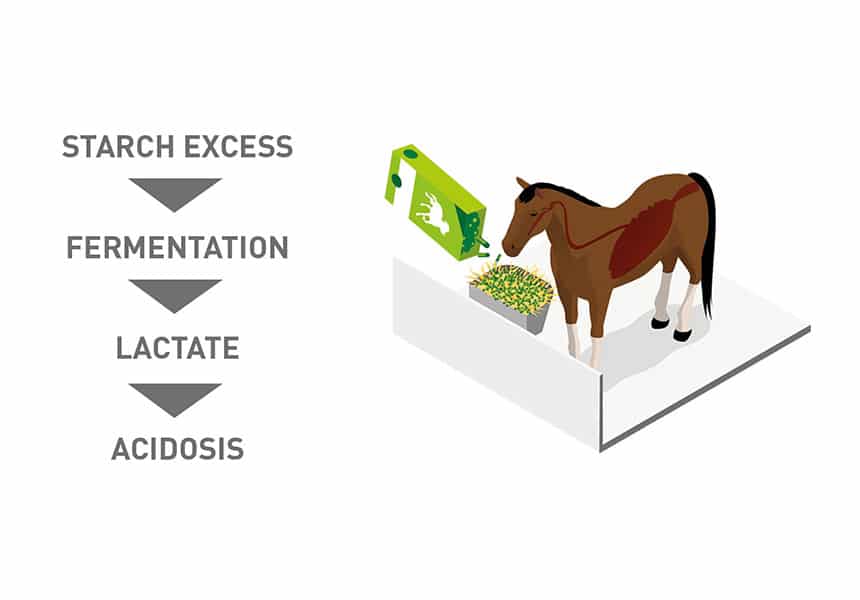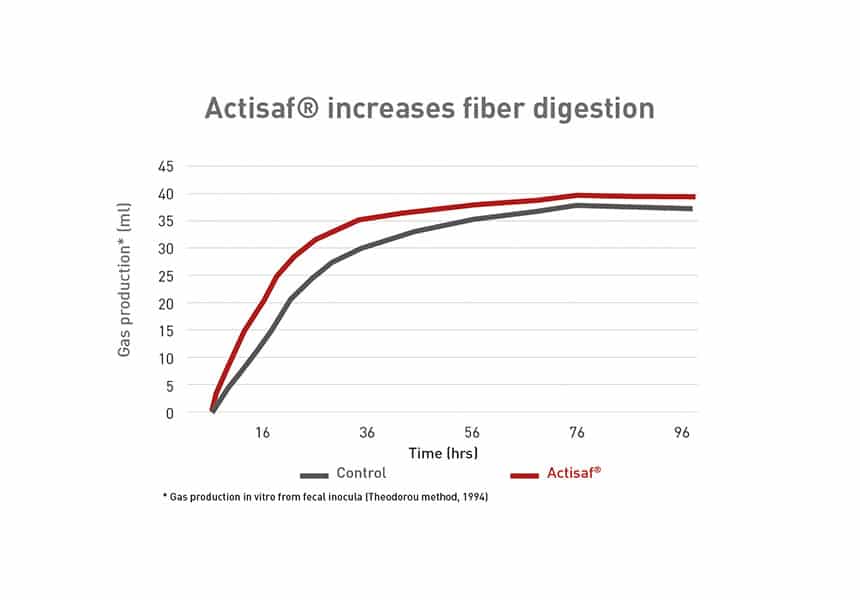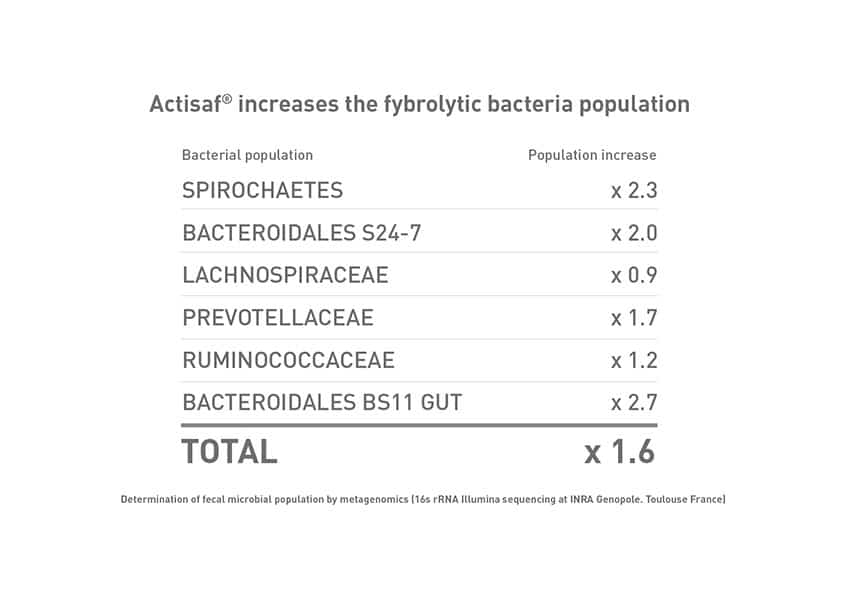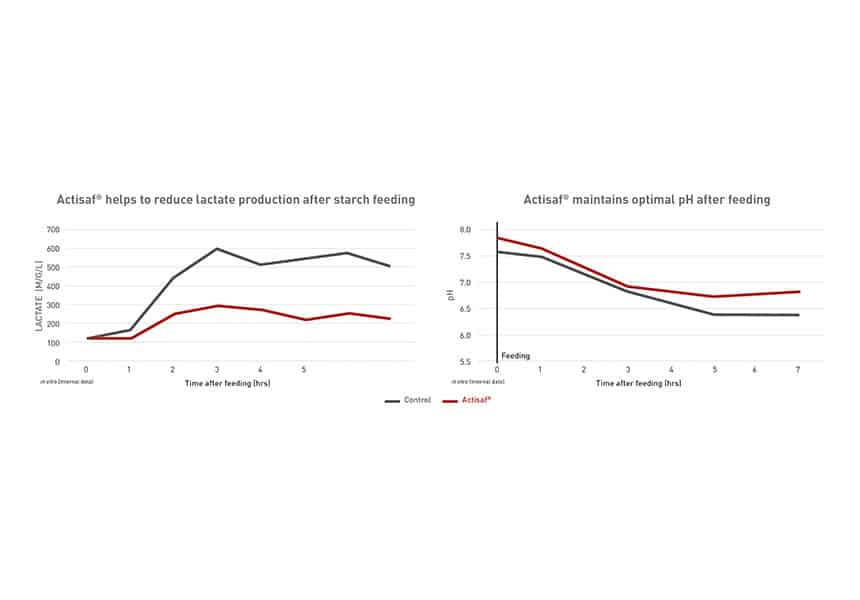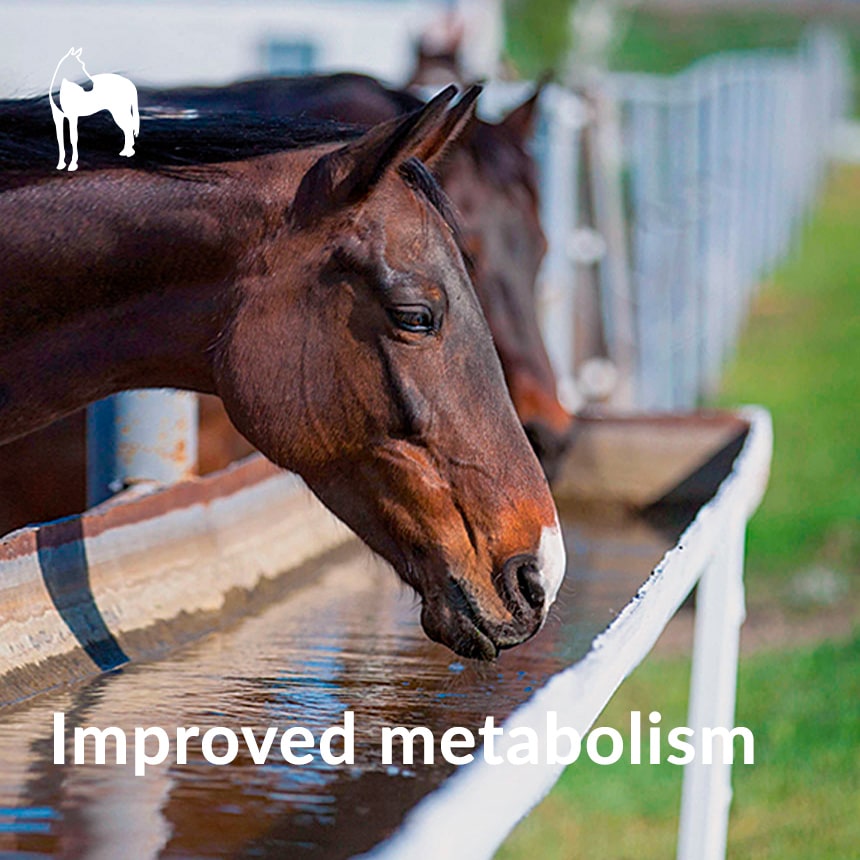Better feed valorization in horses
Horses are involved in different activities such as jumping, racing, endurance, trainings, which quite often exceed their natural digestive capabilities. At Phileo by Lesaffre, we provide yeast probiotics to make the most of daily feed intake, and improve the horse’s performance, while reducing the risk of acidosis and digestive imbalance

Improving digestive efficiency process in horses
Fibers supplied through forage are no longer sufficient to meet the increased energy demands of horses. Modern feeding practice consists of supplementing forage with high-energy cereal-based concentrates.
A horse’s metabolism is not designed to handle the amount of starch fed to them each day. Excess of starch is not digested in the small intestine but is fermented instead by amylolytic bacteria, in the colon. This starch fermentation produces lactate, raising acidity levels in the gastrointestinal tract. The resulting acidosis kills the fibrolytic bacteria, impairing the horse’s digestive metabolism.
Improving fibre digestion in horses
Actisaf® Sc 47, yeast probiotic, has been specially selected to enhance fibre digestion and thus improve feed energy yields. Actisaf® enables animals to gain better energy from forage, adding value to the daily ration. Giving Actisaf® at 10g/day/horse therefore reinforces feed utilisation benefits.
Fibre digestion classically leads to the production of gas by fermentation. This production of gas, used as an indicator, can be measured in vitro to show it is visibly increased by Actisaf® supplementation.
Shifts in the microbial population®
Using the latest metagenomic technologies, this measurable action of Actisaf® Sc 47 can now be explained. Sequencing the microbiota reveals shifts in the microbial population in the hindgut, whenever horse diets have been supplemented with 5g of Actisaf® Sc 47. As illustrated below, by the population of fecal bacteria, significant increases are observed in 6 species involved in fibrolytic activity.
Securing digestive efficiency in horses
Increasing fibre digestion is not the only benefit attached to Actisaf® Sc 47 diet supplementation. The process also reduces the production of lactic acid (due to starch fermentation). This lower production of acid allows intestinal pH to be maintained at optimal physiological levels, which preserves the activity of bacteria involved in fibrolysis. This also reduces the risk of acidosis and related colic, which, as every horse owner knows, quickly jeopardises equine health.










